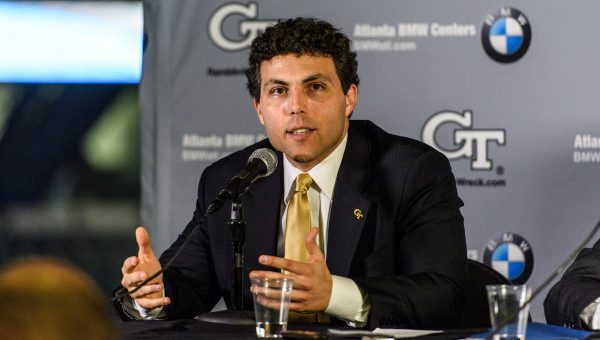Josh Pastner: After seven years at Memphis as a head coach, I learned that the most important aspect of being a successful coach and leader is that all members of your team (which includes staff, support staff, players, and managers) must be fully aligned with the vision of the leader and the culture that he/she wants with their program. If someone is not fully aligned with the vision, drive, and culture of what the leader wants then it can throw a wrench in the direction in which you are trying to head. In retrospect, being able to look at myself in the mirror and recognize the areas at Memphis that I did well and the areas where I needed growth, allows me to have better self-awareness as I start at Georgia Tech.
I admit that I was less than self-aware early on in my head coaching tenure. For example, while I knew the importance of surrounding yourself with assistants who can help augment your strengths and offset your weaknesses, as a first time head coach, I did not have a clear vision or understanding of what my strengths and weaknesses were in the first place. Inevitably, when hiring my staff, I did not do a good enough job of making sure they understood my vision, drive, mission, and how they all aligned. As great of a communicator as I thought I was, I probably was not as good as I needed to be in my initial stages as a head coach, but it’s certainly something that I have improved upon since.
While athletic administrators need to give their head coaches full authority to hire the staff they want, coaches also need their expertise to help them assess the types of people they should have on their staff. Having another set of eyes and ears in helping make the decision of your staff make-up is critical. Of course, that requires some vulnerability on the coach’s end, which is not an easy task for individuals who have spent their entire careers projecting confidence. But the truth is that asking for help, for guidance, and for advice is not a sign of weakness but rather a sign of strength, especially when it involves the hiring of others because in the end this is a people business.
Danielle O’Banion:
While every level of college athletics brings certain challenges, it took me a while to recognize that when you’re at the mid-major level, it’s extremely difficult to hire people that are good at every function. When you’re at a school with competitive constraints and the job isn’t necessarily where you want to spend the rest of your career, finding someone that’s equally great at recruiting, on-court coaching and program management can be a fool’s errand. I learned that you have to focus on hiring people that fit a narrower role and can excel at one particular area.
Even when we finally had the right people on board from a qualification standpoint, I realized that I was spending too much of my time micromanaging. It wasn’t that my staff wasn’t competent enough to do their job, but rather that I wrongly assumed that everyone was on the same page with me when it came to program building. In reality, and not to their fault, many of them perceived the job as a stepping stone. That didn’t mean they weren’t willing to do their work, but they didn’t have the same type of long term vision I was trying to implement. How can you establish a culture within an athletic department, or any organization for that matter, when the people you are leading always have one foot out the door?
This issue isn’t exclusive to coaches either. If you’re trying to get your support staff to come in on a Saturday night to do work (when their goal is to get to the next level with as little effort as possible) you’re in for a rude awakening. Everyone on your “team” isn’t going to help you make it, not because they aren’t great at what they do, but they aren’t going to do more than they have to. As Ben Horowitz discusses in ‘The Hard Thing About Hard Things’, the problem only gets worse over time because once people recognize that others are getting by on minimum effort; their own work ethic converges towards the lowest common denominator.
Key Takeaway:
Athletic administrators need to be aware of how their own culture and departmental standards are influencing their coach’s ability to build successful programs. Particularly at the mid-major level and schools with unique operating constraints, constant turn-over in staff can prevent culture from taking root and will trickle down to affect every facet of a department’s operations. Finding ways of intrinsically motivating employees to do their jobs and preventing a proverbial revolving door might be the most important job an athletic director has.
Furthermore, coaches of all experience levels often struggle with finding the right mixture of assistants and staff with whom to surround themselves. Young coaches especially may not have the self-awareness necessary to realize what their weaknesses are, and can also lack the maturity necessary to delegate tasks they have traditionally done themselves. Administrators must not only help their coaches assess which skills they need to improve and which they need to outsource, but also assist in helping the coach identify the type of culture they wish to have within their programs and then help them seek out the individuals that share those values.
